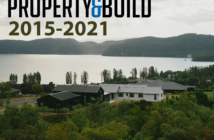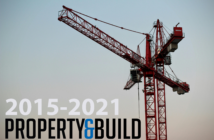Five of New Zealand’s fastest-growing councils will have infrastructure projects funded through the government’s $1 billion Housing Infrastructure Fund.
“These funding decisions will help provide another big step forward in housing supply,” Finance Minister Steven Joyce says.
“The funding will be used to provide network roading and water infrastructure for 60,000 houses across nine projects in these five fast-growing urban areas.”
“The funding of this infrastructure is bringing forward the ability to build these homes in some cases up to eight years earlier than otherwise,” Construction Minister Dr Smith adds.
“Adding these big new subdivisions will help lift the supply of residential sections and bring greater consumer choice into the housing market.”
The successful proposals are in critical high-growth areas including:
- Auckland Council – $300 million – 10,500 houses. Greenfield development (North-west) at Whenuapai and Redhills.
- Hamilton City Council – $272 million – 8,100 houses. Greenfield development (Peacockes) on the southern edge of Hamilton.
- Waikato District Council – $37 million – 2,600 houses. Te Kauwhata (new development on the shore of Lake Waikare).
- Tauranga City Council – $230 million – 35,000 houses. Greenfield development at Te Tumu (eastern end of Papamoa) as well as a capacity upgrade to the Te Maunga Wastewater Treatment Plant and a new (Waiari) water treatment plant (at Te Puke).
- Queenstown Lakes District Council – $50 million – 3,200 houses. Two new greenfield sites (Quail Rise South and Ladies Mile) on the Frankton Flats and an extension of the Kingston township.
Proposals were assessed by independent experts and an independent evaluation panel recommended the agreed package to ministers.
“The infrastructure to be funded includes a new bridge over the Waikato River, a State Highway interchange, arterial roads, water and waste treatments plants, pump stations and reticulation and collection networks, and storm water drainage”, Joyce says.
“This infrastructure initiative is the logical next step in our housing programme,” Smith says.
“We have freed up planning constraints on new subdivisions through Special Housing Areas and reforms to the Resource Management Act but the areas zoned for residences cannot be built on without infrastructure.
“We will be working closely with the councils and developers to ensure these projects are progressed at pace.”
“The next step is for the councils to complete with the government the detailed funding agreements which we expect to be concluded in the next few months.
“There is also a huge amount of work required on resource consenting and construction of the works.
“The first earthworks will be under way this coming summer, the first homes consented early in 2018 and homes completed by late 2018.”
The government expects to make statements on further new funding options and tools for housing infrastructure in the coming weeks.



